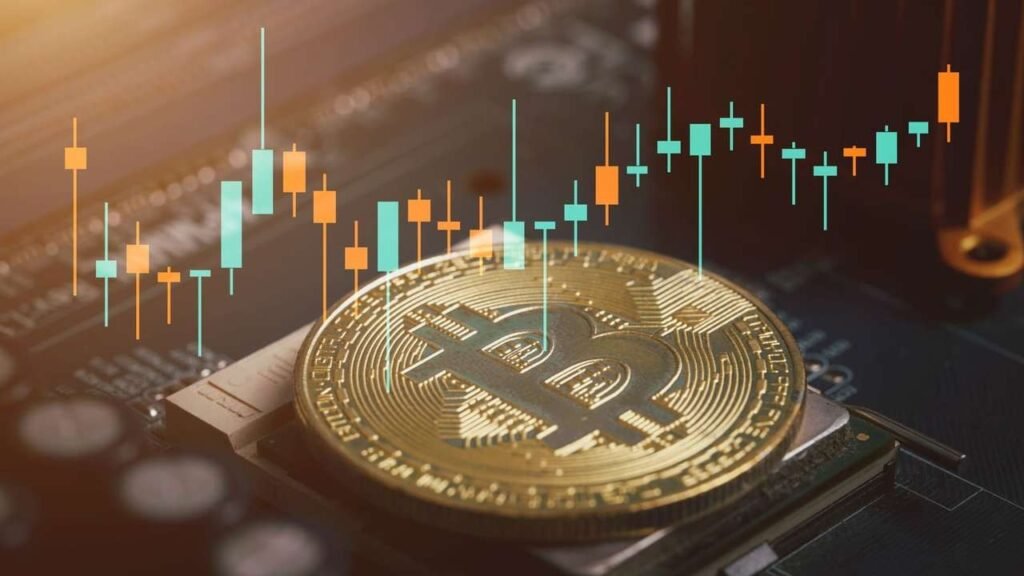Bitcoin News, the most popular cryptocurrency in the world, will still be at the heart of digital finance news in 2025. The Bitcoin ecosystem keeps changing, from price fluctuations and changes in the economy as a whole to institutional acceptance and happenings in the world. BTC has seen huge price changes this month alone, caused by both political upheaval around the world and new waves of institutional investment. As nations try out sovereign crypto reserves and rules get stricter, it’s clearer than ever that Bitcoin is both a speculative asset and a useful financial tool. Bitcoin 2025 price and institutional investment
Bitcoin’s Volatility Fuels Strong Recovery
Since June 2025, Bitcoin traders have experienced a turbulent journey. In the middle of June, Bitcoin fell below $100,000 for the first time in two months because things got worse in the Middle East. But the drop didn’t last long. Within a week, BTC rose back above $106,000 thanks to more institutional money coming in through spot ETFs and positive feelings from investors throughout the world.

Bitcoin has been going through this pattern of short-term drops and big rebounds for a long time. But the most recent resurgence means more than just that. Market analysts say that the price floor is rising because asset managers and sovereign wealth funds are making purchases. Standard Chartered and Fundstrat analysts say that BTC might reach $150,000 by the end of the year since demand is rising and supply is restricted after the 2024 Bitcoin halving.
Institutional Bitcoin Reserves Rise
The growth in Bitcoin investments by institutions and governments this year has been one of the biggest changes. Texas made news in the US when it officially established a Strategic Bitcoin Reserve. The arrangement lets state treasurers put some of their money into BTC along with gold and other traditional reserves. Pakistan’s government said it will start negotiations about building its own national Bitcoin reserve, based on this concept. Local blockchain supporters and plans for optimising energy surpluses support this idea.
Philippe Laffont of Coatue Management says that Bitcoin’s market cap might reach more than $5 trillion if more companies, public pensions, and governments start buying it. ETFs are now giving Wall Street and family offices a safe way to get into Bitcoin, which is losing its reputation as a risky investment and gaining credibility as a long-term store of wealth.
Spot Bitcoin ETFs Stabilize Market
Spot Bitcoin ETFs are still making the market more liquid and less volatile. These instruments have brought in more than $70 billion in total since they were approved earlier this year. Most of this money came from traditional financial institutions. This effort has raised Bitcoin’s market cap and balanced the power of whales, or people and companies that own a lot of BTC.
Recent on-chain data shows whales buying coins in the $100,000 range, indicating they expect prices to rise. As more people invest in ETFs and Bitcoin becomes a typical part of diverse portfolios, these large holders may function more like long-term market stabilisers than short-term manipulators, according to analysts. Bitcoin 2025 price and institutional investment
Bitcoin’s Evolving Safe Haven
Global turmoil continues to impact the crypto markets. After the U.S. airstrike in Iran, many investors sold off their major cryptocurrencies. Bitcoin lost more than 4% in one trading session. But BTC’s quick recovery shows that it is becoming a sort of safe haven asset. This two-sided behavior—being weak to macro shocks and strong in recovery—shows how Bitcoin is becoming more mature in the financial world.

Countries that are dealing with rising prices and falling currencies are also using Bitcoin. Peer-to-peer BTC activity has gone up a lot in Argentina, Nigeria, and Turkey as people try to keep their money safe outside of traditional banks. This way of using Bitcoin gives it real-world value beyond just exchanging it for fun. Bitcoin 2025 price and institutional investment
Final thoughts
Regulation is still a big concern as crypto becomes more and more a part of the world’s economies. U.S. regulators are closely monitoring crypto ATMs after receiving numerous reports of fraud. Some states, like Illinois and Vermont, are setting daily limitations, while Spokane, Washington, has put a ban in place. The FTC and DOJ said that scams utilising crypto ATMs have gone up 900% since 2020, and they often target elders and other vulnerable groups.
Simultaneously, authorities are formulating more comprehensive regulations concerning custody, tax reporting, and safeguarding consumers. The SEC and CFTC are working together to improve the rules for disclosing digital assets. At the same time, central banks are trying to figure out how to handle decentralised currencies, like Bitcoin. These changes are making the crypto economy more open and responsible.


















